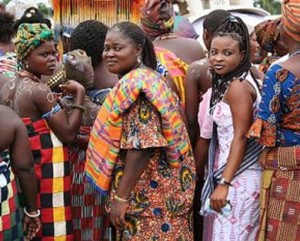Women’s Situation Room process started in Ghana
 Ghana has started the process to institute a Women’s Situation Room (WSR) to tap into the expertise of women to prevent or mitigate conflict that could lead to violence in the November 7 polls.
Ghana has started the process to institute a Women’s Situation Room (WSR) to tap into the expertise of women to prevent or mitigate conflict that could lead to violence in the November 7 polls.
The Women’s Situation Room concept was initiated by the Angie Brooks International Centre (ABIC) and implemented in Liberia during its 2011 presidential and legislative elections.
It has been adopted by the African Union’s Gender Is My Agenda Campaign (GIMAC) as a Best Practice with President Ellen Johnson Sirleaf of Liberia as its Champion.
As part of the process, the West Africa Network for Peace building (WANEP), who is the conveners of the WSR in Ghana, held a consultative meeting on the establishment of the WSR in Ghana which was attended by representatives of women’s groups in Ghana as well as other stakeholders in peace building.
Speaking at the event, Counsellor Yvette Chesson-Wureh, Initiator of the WSR and Coordinator of the ABIC, who briefed participants on the concept of the WSR, said the room would allow women to engage with the electoral process without having to be politically affiliated.
The room was also built on the United Nations’ Security Council Resolution 1325, which reaffirms the important role of women in the prevention and resolution of conflicts including electoral violence.
Cllr. Chesson-Wureh noted that due to the critical role of the media and the youth in conflict prevention, as they had seen in Liberia and other countries where the WSR had been replicated, they were critical stakeholders in the room and would be trained to be agents of peace building.
The Women’s Situation Room has so far been replicated successfully in Senegal and Sierra-Leone in 2012, Kenya in 2013, Nigeria and 2015 and Uganda, still ongoing, in 2016.
She also expressed the need for the room to be credible by preventing any political interference in the activities of the room.
“We cannot be pro any political party, it’s not going to happen. The neutrality of the room is paramount because that is where your credibility lies and that is how you intervene after elections. People must see you as being for Ghana and not for any political party,” she stated.
Ms Barbara Sangare, International Coordinator of the WSR, urged Ghanaian women to own the room irrespective of their socio-economic status as violence, adding that when it happened, affects all women.
She said the WSR would be replicated at the district level in order to include women and youth at those levels and would hold stakeholder meetings at the district level.
Briefing them on the structure of the WSR, she said the WSR was a process, which had already started with the physical room to be set up later in the process.
The essential activities of the room included the convening of the room by a civil society entity, WANEP in Ghana, stakeholder dialogue with contact group comprising national and international women to secure support, selection of national eminent women, African eminent persons, who will support in elections observation and liaising with power brokers in event of threats.
There would also be district pressure groups, youth peer peace process to train youth to engage their peers for peace, training and deployment of elections observers, setting of the Situation room, engagement with media including using voice of peace and signing of a peace cloth.
The actual situation room would comprise two rooms; the Eminent Women room and the Operations room
Source: GNA
